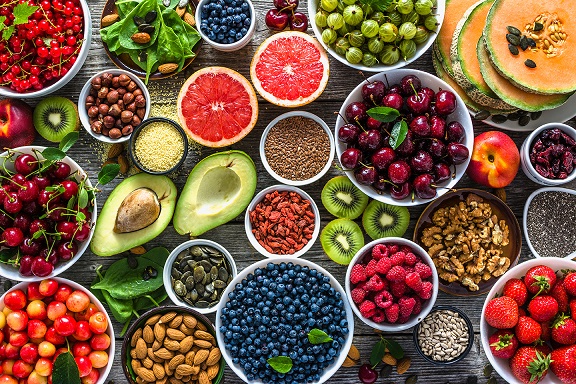A report entitled, “Recipe for health: a plan to fix our broken food system” [1], was published in October by The House of Lords Food, Diet and Obesity Committee
This Post highlights some of the findings of the report and considers how the report relates to plant based diets
Although not going as far as recommending a vegan diet, many contributors to the report suggested that part of the solution to a broken food system is to ensure that our diets are high in fruits, vegetables, legumes, nuts, seeds and whole grains.
This report provides further evidence for the benefits of plant based diets and should motivate government and business both to promote these diets and remove barriers to their uptake
Health
The report is largely motivated by increasing rates of obesity in the UK. It notes that two-thirds of adults are overweight and just under a third are living with obesity and that unhealthy diets are the primary driver of obesity
This matters for both the individuals and for society
After tobacco, diet-related risks now make the biggest contribution to years of life lost.
It was suggested that the economic cost of overweight and obesity was £98 billion, including costs to the NHS and social care, lost productivity, workforce inactivity and welfare payments
Ultra Processed Foods
An entire chapter was given over to Ultra Processed Foods (UPF)
Although there are various definitions of UPF, essentially these are foods which have gone through industrial processing and to which additives have been added such as flavours, colourants, sweeteners, thickeners and emulsifiers that mimic the properties of whole foods and encourage overconsumption.
The role of UPFs together with animal based products was highlighted by Professor Mike Rayner [2] who mentioned “recent cohort research showing an association between higher UPF consumption and an increased risk of multimorbidity but only for certain categories of UPFs, i.e. animal-based processed products and artificially and sugar-sweetened beverages, but not ultra-processed breads and cereals or plant-based meat alternatives”
“We have come to realise that to attain more healthy and sustainable diets we need to switch from animal based foods to plant based foods (whether they are processed or not). It is not just the processing of foods which makes them unhealthy and unsustainable but the raw materials from which they are manufactured as well”
So another reason to avoid animal-based products
The report noted that government and industry have an important part to play in promoting healthy food and making it available. But changes are slow and in many ways obstructed by companies with disproportionate economic and political power, and with the inherent conflict between profit-making and public health
Henry Dimbleby [3] illustrated how so many resources are given to marketing calorie-dense products: “You can now buy 29 different forms of KitKat in this country. That kind of food has come to completely dominate our diet”
Indeed. When I checked, even the vegan kitkat is 34% sugar, 30% fat + emulsifiers [4]. A “vegan” label doesn’t necessarily mean healthy!
Sources of fresh food
Professor Tim Spector [5] made an interesting point about the value of frozen and canned food:
“It is a misconception that fresh vegetables are healthier than tinned or frozen ones. He pointed to findings showing that most frozen vegetables have as many or sometimes more nutrients than fresh ones, and said that cans of vegetables are often extremely nutritious”
So what is to be done?
As the report says, “There is scientific consensus that a diet high in fruits, vegetables, legumes, nuts, seeds and whole grains as well as fibre and low in foods high in fat, salt and sugar supports health and helps protect against diabetes, cardiovascular diseases, stroke and cancer.”
Although Government and Business may not move as fast as we would like, we should continue to bring these facts to their attention at every opportunity.
We can also educate and inform ourselves that not only is a plant based diet healthy, it is able to provide most of our requirements – there is certainly no need for meat, fish, eggs and dairy.
In summary, a useful report with much to agree on regarding the harms caused by many Ultra Processed Foods, and the benefits of increasing plant based components of the diet. It shows that consumption of meat often correlates with bad health outcomes, but it fails to fully address the problems of meat and dairy
[2] https://www.oxfordmartin.ox.ac.uk/people/professor-mike-rayner
[3] https://en.wikipedia.org/wiki/Henry_Dimbleby
[4] https://www.sainsburys.co.uk/gol-ui/product/kitkat-vegan-415g
